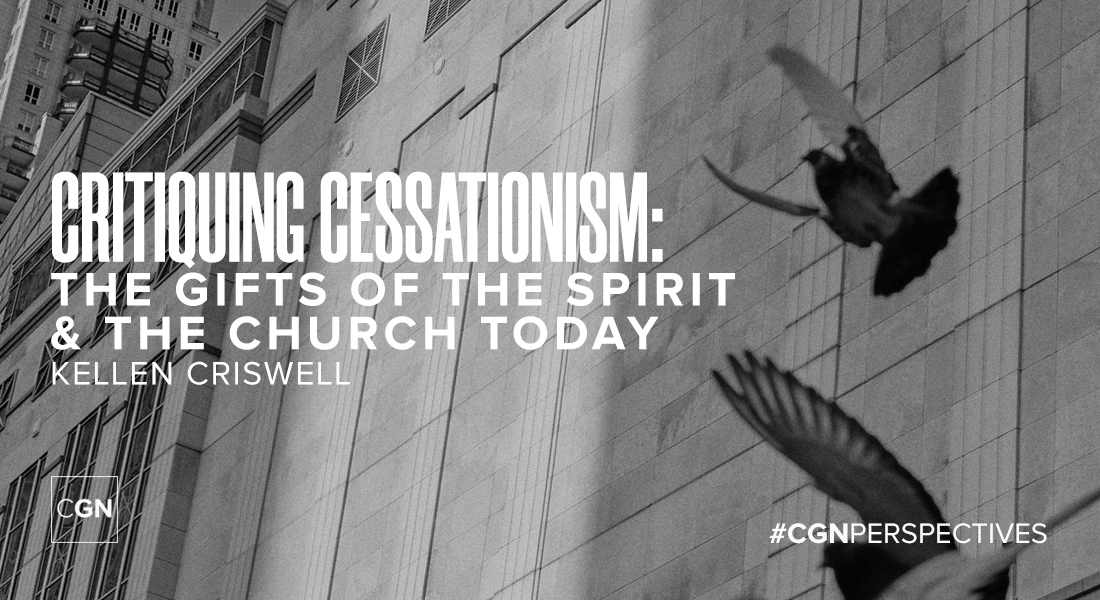
In my last post in this series, I tried to offer a valid explanation of cessationism along with the primary points commonly held in support of that position. In this post, I want to graciously and honestly address some weaknesses in the arguments set forth in support of cessationism.
Response to the “Foundational Apostles” Argument
First, there are biblical and logical problems with the argument for cessationism from the foundational role of the apostles. Biblically speaking, the New Testament seems to affirm two aspects of apostleship. On the one hand, it is true that the Twelve (minus Judas Iscariot) and the Apostle Paul served in a uniquely foundational role in establishing the church (Ephesians 2:20). The story of Acts makes this abundantly clear (Acts 1:15-16; 21-26). However, on the other hand, the New Testament also employs the term apostle(s) to refer to several people aside from the Twelve and Paul. For a few examples, these include Apollos (1 Corinthians 4:6-13), James (Galatians 1:19), Barnabas (Acts 14:14); Titus (2 Corinthians 8:23), and more.
None of these men who are called apostles in the New Testament served as authors of inspired Scripture. These were people who lived and served the church during those foundational years and were called and gifted by the Holy Spirit as apostles, even though they never operated as God’s agents in receiving and delivering inspired scripture to the church. This means that, though they were certainly important and strategic leaders in their own right, they were not foundational in the same way that the Twelve and Paul were foundational to the establishment of the church, and formulation of the biblical canon. This would seem to at least imply the possibility that such apostles could exist today without threatening the closed canon of the Bible, or leading to Roman Catholic conclusions about Apostolic Succession.
Then there is the issue of logic on this argument. Again, the reality that people other than the Twelve and Paul are called apostles in the New Testament demonstrates that the gift of apostleship was not limited to the small group of leaders generally regarded as the foundational apostles, even during the early days of the church. Many cessationists link the alleged passing of the role of the apostle with the passing of revelatory gifts. One necessarily implies the other, in their view. They argue that if the gift/office of apostleship ceased with the passing of the Twelve and Paul, other revelatory gifts they presume to have accompanied that office must have accordingly ceased in operation.
Using this cessationist logic, one could just as easily argue that, since scripture plainly declares that people not numbered with the Twelve and Paul did, in fact, operate in the gift of apostleship, it makes sense to assume that people may operate in these gifts today, since they were not merely connected to the laying of the foundation of the church. And, if this is true, then the revelatory gifts in the New Testament supposedly connected to the ministry of apostles in scripture could be presumed to be in continuation today as well. The point is that the cessationist argument from the foundational role of the apostles neither squares with Scripture, nor is it immune to refutation when one applies this same line of logic many cessationists use to support their perspective on this point, but in reverse.
Response to “The Authenticating Role of Miracles” Argument
Second, there are problems with their argument from the authenticating role of miracles in the ministries of Jesus and the apostles. The fact that miracles were used as authenticating markers in this sense does not mean that this was their only purpose. According to Paul, God’s purposes in granting miracles and healings also include enabling believers to be useful to one another and facilitating spiritual edification in the church (1 Corinthians 12:7). Scripture does not limit God’s intentions for miracles, healings, and the like to authenticating Messianic or apostolic ministry, and neither should people today.
Far more people than Jesus and the apostles experienced miraculous manifestations of the Holy Spirit in the New Testament (Acts 6:8; 8:6). Paul’s instructions to the Corinthians declare that the charismata are the potential experience of all individual believers in the church (1 Corinthians 12:4-11). In his speech at Pentecost, Peter reaches back to Joel 2:28-32 to provide a biblical framework for understanding the manifestation of the gift of tongues the people were hearing at that pivotal moment in church history: “God declares, that I will pour out my Spirit on all flesh, and your sons and your daughters shall prophesy, and your young men shall see visions, and your old men shall dream dreams; even on my male servants and female servants in those days I will pour out my Spirit, and they shall prophesy” (Acts 2:17a-18). In other words, Peter was saying Pentecost kicked off a time when far more than just leaders who had been chosen for special roles in God’s service would experience powerful manifestations of the Spirit. The gifts of the Spirit would now become an equal opportunity for all of God’s people. Peter’s point is exactly the opposite of the cessationist perspective that would assign such gifts to a small, limited number of strategic leaders, who were in operation in a very narrow window of early church history.
Response to the “Absence of Charismata in Church History” Argument
Third, the argument for cessationism from an alleged lack of documented cases of believers experiencing the manifestations of the Spirit in church history is demonstrably weak. Dr. Sam Storms addresses this argument in his helpful article, “Gifts in Church History,” in which he cites six sources from church history that document manifestations of charismata in local churches between the first and fifth centuries.1 These include examples from the writings of Justin Martyr, Irenaeus, Eusebius, Augustine, and more. If you would like to review some strong refutations of this particular argument for cessationism, consult Dr. Storms’ articles and other writings on the topic, as well as the much more extensive work of New Testament scholar and continuationist, Craig Keener, entitled, “Miracles: The Credibility of the New Testament Accounts.”2
Response to the “Closed Canon” Argument
Fourth, the argument for cessationism from a closed canon has weaknesses. For one, there is no evidence that tongues or prophecy were the mediums through which God moved the biblical authors to formulate inspired Scripture. On the contrary, Paul plainly and bluntly describes tongues as praying (1 Corinthians 14:14), singing (14:15b), and giving thanks (14:16) in the spirit to God (2a), for the believer’s personal edification (4a), by means of a language previously unknown to the speaker (14:10-14). New Testament Prophecy is speaking a spontaneous (14:30), biblically-consistent message (14:29b), which brings edification, exhortation, or comfort to the hearer (14:3). These are not gifts reserved for the spiritual elite or uniquely called, but the potential experience of all believers (14:1), young or old, male or female (Joel 2:28-32; 1 Corinthians 11:5), leader or non-leader (1 Corinthians 14:31). If these revelatory gifts were experienced by all believers (not just the apostles and authors of Scripture), during the first century of the church, and were therefore clearly not the mechanism through which inspired Scripture was granted, then there is no reason to believe that their usefulness would pass from the scene when the canon was completed.
Response to “the Perfect” Argument
Regarding 1 Corinthians 13:8b-9, it is more likely that the perfect Paul had in mind is the state of glorification believers will experience in the next age. This squares more with the believer’s current reality as it relates to the rest of the text. Believers do not presently possess the face-to-face type of self-awareness and God-awareness Paul describes in this text. They walk imperfectly through the battlefield of life, still waging war against the flesh, the lust of the eyes, pride, and the Devil (1 Corinthians 13:12, 1 John 2:16; 1 Peter 5:8).
Response to “the Absence of Modern Experience” Argument
Fifth, the argument for cessationism based on the reality that many faithful followers of Jesus today do not experience certain manifestations of the Spirit has weaknesses. Chiefly, it does not account for the role of personal desire that is required to experience the manifestations of the Spirit listed in 1 Corinthians 12-14. Through Paul, God commands believers to, “earnestly desire the spiritual gifts, especially that you may prophesy” (1 Corinthians 14:1, ESV). This implies that there are at least two things that are normally required for a person to experience these manifestations of the Spirit: 1) Human Desire 2) God’s Will. Though the Spirit distributes the gifts according to His will (1 Corinthians 12:7), God calls His people to desire and seek these gifts. It is difficult for a Christian to desire something from God that they do not believe is possible, or even God’s will. If people are not encouraged to desire these gifts, we should not expect them to experience them.
A Caution: How to Shut the Spirit Up
God commands the church to actively avoid quenching manifestations of the Spirit. (1 Thessalonians 5:19-22; 1 Corinthians 14:39-40) Nothing could be more quenching to the Spirit and His desire to grant the charismata in our midst than teaching people that these manifestations of the Spirit are not available to the church today and that they should not be sought or tolerated by believers in our personal lives and congregational gatherings. When we decide it is no longer necessary to adhere to a clear command of Scripture, such as, “do not despise prophecies,” (1 Thessalonians 5:20) there is more at stake than winning a theological sparring match. This is not to say that all commands in Scripture apply to believers today in the same way that they did to their original audience. However, the weight of what it means to draw the conclusion that certain clear commands directed to the church in the New Testament are no longer applicable to the church today must be soberly felt, and taken seriously as we formulate our perspectives and practice on these matters.
What’s Next?
I hope that this article provides some helpful things to think about as you continue to shape your understanding and practice of the so-called gifts of the Spirit. In my next post in this series, I will offer an explanation of the other primary theological perspective on this topic known as Continuationism. In that post, I will also highlight some strengths and weaknesses of the continuationist position. Look for it in the coming weeks on CalvaryChapel.com.
Notes:
1 Storms, Sam. “Gifts in Church History”. Sam Storms. May 22, 2013.
2 Keener, Craig. “Miracles: The Credibility of the New Testament Accounts”. Baker Academic. 2011.









